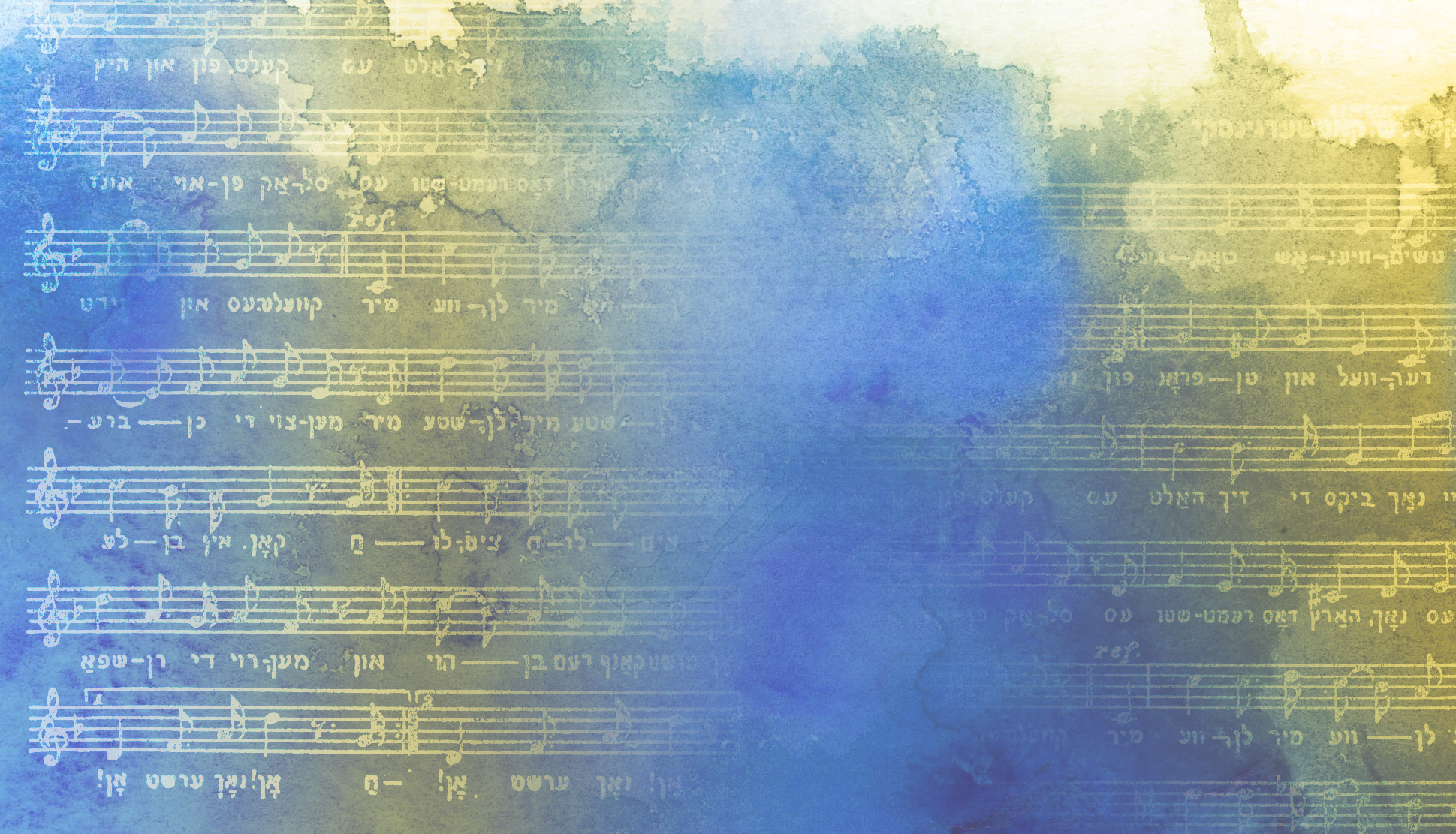Songs of the Partisans and the Youth in the Vilna Ghetto
One of the most important political organizations in the Vilna ghetto was the FPO – Fareynike Partizaner Organizatsye (United Partisan Organization). Established in 1942, the FPO cooperated with the Soviet partisans in combat against the Nazis in the forests around Vilna. The relationship between the FPO and the Judenrat in the Vilna ghetto was, for the most part, good. However, in the spring of 1943, deportations of Jews from the towns around Vilna to their deaths at Ponary began once more. The Judenrat feared immediate danger to the ghetto residents, and that the smuggling of arms into the ghetto and other partisan activities would accelerate the liquidation of the ghetto. The head of the Judenrat Jacob Gens planned to send the leaders of the FPO to labor camps, thus ceasing their activities in the ghetto.
The event of Yitzhak (Itsik) Vitnberg led to the expulsion of the partisans from the ghetto to the forests surrounding Vilna. Vitnberg, an FPO commander, had been arrested by the Gestapo and freed by the FPO. The Gestapo threatened the liquidation of the entire ghetto population if he did not surrender. Vitnberg gave himself up and was murdered two days later. This pivotal event was commemorated in a song written by Kaczerginski, and is included in this compilation.
Some of the FPO members were also prolific writers and poets, among them Abraham Sutzkever, Shmerke Kaczerginski, Abba Kovner, Hirsh Glik and Leyb Opeskin. The writers saw the songs as an effective way of promoting the battle, strengthening the fighters and uniting the ranks. Most of the FPO songs deal with the themes of heroic bravery, the endurance of the Jewish nation in the face of their enemies, and revenge against them. Many of the songs are still sung today.
The song “Zog Nit Keyn Mol” (Never Say), composed by the young poet Hirsh Glik in 1943 and sung to a Russian melody for a film written by Dimitrii Pokrass, became the official hymn of the FPO, often sung at Holocaust Remembrance Day ceremonies. Another song, “Yid, Du Partizaner” (The Jewish Partisan), also known as “Partizaner Marsh” (Partisan March), became well known among the partisans, ghetto residents and others.
Glik and Kaczerginski composed their songs in the Soviet style. Most of the popular composers of Soviet songs during the 1920s and ‘30s, such as Dmitri Pokrass, Matvey Blanter and Isaac Dunayevsky, were, in fact, Jews. While their songs included Jewish folk elements, the songs’ main character was based on ideological texts and a simple musical style – symmetrical melodies, tuneful short phrases and marching rhythms. Some songs of the Vilna ghetto partisan, like “Zog Nit Keyn Mol” and “Itsik Vitnberg,” adapted these Soviet melodies, while others were composed in a similar style.
Kaczerginski’s songs served as battle hymns, rousing young partisans to go out to battle.
The songs described the events in the ghetto and the actions of the partisans. “Itsik Vitnberg,” for example, tells the dramatic story of the commander. Hirsh Glik’s “Partizaner Lid” (Partisan Song) documents the successful attack by partisans on a German army convoy in 1942.
The Vilna partisan songs can be distinguished from other ghetto songs in several ways: they are more courageous in the themes they choose, they openly call for violent resistance and revenge, and they describe the enemy’s defeat and their heroic victory. These songs do not deal with rebellion and protest through uncertainty, questioning, fear, despair, loneliness, etc. – the central themes of the Vilna ghetto’s songs, particularly those performed in its theater. The partisan songs were melodically much more similar to Soviet than Yiddish songs, and they were intended for communal, public singing. The positive battle spirit of the partisans infected the youth in the ghetto, as well as their activities. Partisans such as Kaczerginski and Sutzkever taught in the youth clubs, transmitting their ideas and songs – written especially for them – to the younger generation.



